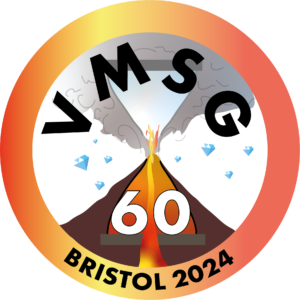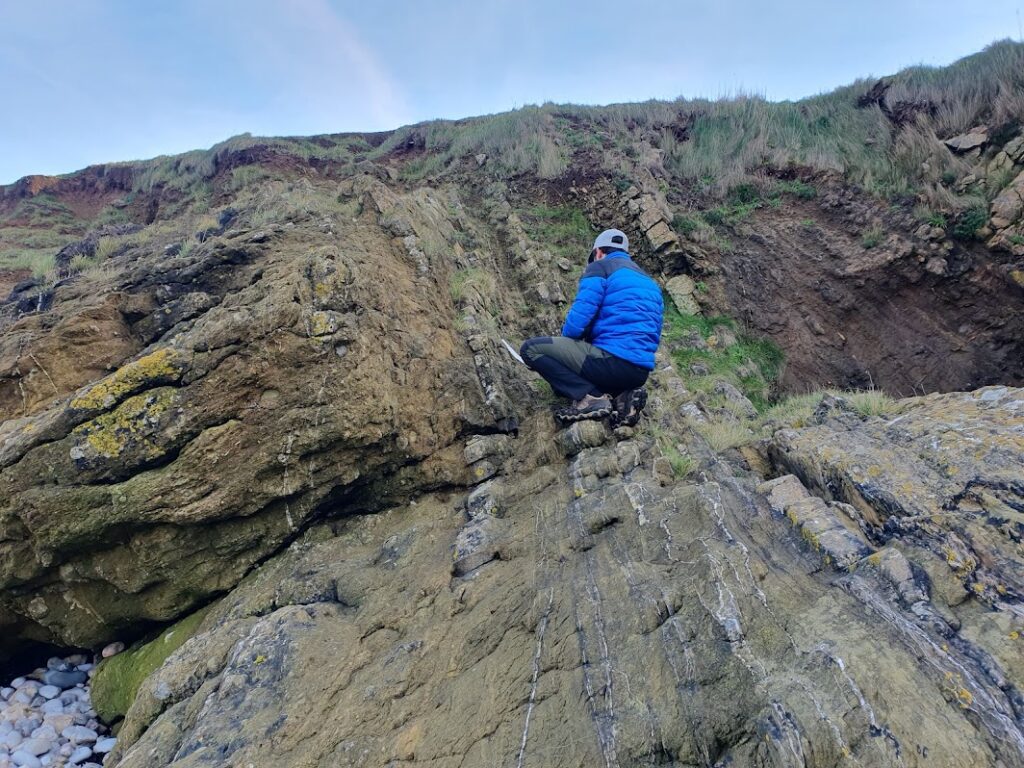Workshops and Fieldwork

Several pre-conference workshops and one post-conference field trip are being offered in addition to the core schedule. You can register for the workshops here; https://shop.bris.ac.uk/product-catalogue/faculty-of-science/school-of-earth-sciences/conferences/vmsg-conference-workshop-2024. You can register for the fieldtrip here https://shop.bris.ac.uk/product-catalogue/faculty-of-science/school-of-earth-sciences/conferences/vmsg-conference-field-trip-2024.
Please note that you MUST have registered for the conference before signing up to these events. Please use the same email address for both. Places are available on a first-com first-served basis.
Workshops will run on Wednesday 3rd January and are each charged at £10.
Fieldtrip run on Saturday 6th January and is charged at £35. We will leave Bristol University by minibus and return in the afternoon. Timings TBC, dependent on tides.
All charges are VAT exempt, and sales go through the University of Bristol online shop. Workshop costs include a mid-morning tea/coffee. Fieldtrip costs include travel to and from the field site from Bristol by coach/minibus. Places on these events are limited on a first-come first-served.
Workshop 1 – Early Career Fellowship Writing Workshop
10:00-12:00. This workshop, run by Claire Harnett (UCD), is aimed at early career researchers who are or will be applying for postdoctoral fellowships.
Writing a fellowship application can be a daunting prospect, especially when it often coincides with finishing up your PhD and a time of high uncertainty. Whether you are early in your PhD and thinking ahead, or already have a postdoc under your belt, we hope this workshop will give you an overview of the opportunities that are out there for you. With this workshop, we will have successful recipients of many of the leading fellowships open to volcanologists, for example NERC Independent Research Fellowships. You will be given an introduction to the various fellowships from people who have been through the process before, as well as an open discussion on best practice and important things to consider across all fellowship schemes. The panel discussion will be an excellent opportunity to ask all the burning questions that you might not have been able to ask before. We hope this will be a great informal networking opportunity for the early career scientists in the VMSG community, as well as removing some of the mystery around the steps towards holding a fellowship.
Workshop 2 – Data visualisation
09:00-13:00. This workshop, run by Jamie Farquharson (Niigata University) and Eilish Brennan (Leeds) will include lectures (~50%) interspersed with worked examples (~50%; partly in a code-along format using Jupyter Notebooks). Participants will be required to bring a personal laptop.
Data visualisation is a crucial step in the exploration and explanation of data. Through a combination of theory and practice, this brief workshop will run through some key themes in data visualisation, including:
- The importance of data visualisation.
- Foundational principles of data visualisation.
- Types of data and types of graphical objects.
- The anatomy of a figure.
- Translating data to visual media.
- Data visualisation tools.
- From raw data to publication-quality figures.
This workshop is open to all interested in improving their science communication by advancing their data visualisation skills.
Workshop 3 – Satellite-based volcano monitoring
09:15-13:00. This workshop will be run by Edna Dualeh (University of Bristol), Ben Esse (University of Manchester), Isabelle Taylor (University of Oxford) and Juliet Biggs (University of Bristol)
Remote sensing can provide continuous and frequent observations of volcanic activity, which is often not possible on the ground, especially during on-going eruptions. There are many different types of sensors, data and techniques that have been developed for assessing unrest and eruptions at volcanoes to help better understand system behaviours and associated hazards. The aim of this workshop is to provide a short introduction (through lectures, demonstrations, and practicals) to some of the current remote sensing techniques and their limitations for volcano monitoring, with a particular focus on ground deformation (i.e., InSAR), volcanic degassing using data from IASI and TROPOMI, and mapping volcanic deposits.
Workshop 4 – Volcanoes and their Intersection with Societies – Opportunities and Challenges
10:00-12:00. This workshop will be co-ordinated by Jeremy Philips (University of Bristol) and Jenni Barclay (UEA).
Although interdisciplinary research is often proposed as the best way to tackle complex scientific and environmental research questions it is often less clear what that means in practice. When different disciplines collide there can be clashes between research cultures, and at worst the best interests of the populations at risk themselves can be overlooked. This workshop aims to serve as an introduction to the different ways in which we can understand the intersection between human societies and volcanic contexts and consider the practical and ethical challenges in working this way. To make this session dynamic and interactive we will use the example ‘challenge’ of reducing societal risk from volcanoes to introduce and explore these issues.
The workshop will begin by exploring the range of frameworks and techniques used to understand the social and cultural dimensions of volcanic risk, then move on to explore the ways in which research questions or frameworks for interdisciplinary investigation can be formulated – along with the ethical and practical considerations that need attention when working this way. The workshop will conclude with a series of practical exercises, that draw on experiences from the STREVA, Ixchel and other interdisciplinary research projects, to practice how to construct these types of projects and the ethical and practical dilemmas that need to be tackled as research is completed. The workshop will be facilitated by a team of researchers experienced in interdisciplinary volcanology and is suitable for any career stage of researcher curious about or experienced in working in this way!
Workshop 5 – Demonstration of VolcTools: web-based models for volcanic hazard assessment
10.00-13.00. This workshop will be led by Mark Woodhouse (University of Bristol)
VolcTools is a growing suite of web-based modelling tools for volcanic hazards. It includes models for eruption columns (PlumeRise), statistical inference of mass eruption rate from column height (Merph), near-field ash deposition (AshDisperse), and lahars and debris flows (LaharFlow). In this workshop we will give hands-on demonstrations of each of these models, illustrating their use as practical hazard prediction models and as tools in teaching modelling in volcanology.
Fieldtrip – Sand Bay volcanics.
The Middle Hope volcanics of Weston-Super-Mare form a coarsening- and shallowing-upward sequence which records the development of a shallow marine offshore volcanic-high. This sits above the outer carbonate-ramp deposits of the upper part of the Black Rock Limestone. The succession consists of interbedded submarine volcaniclastic material, pillow lavas, and limestones representing deposition from below storm wave-base to above fairweather wave-base.
We will be focussing on the submarine volcaniclastic sequence, exploring the magnitude and timescales of eruption, and discussing the implications for the source volcanism.

Observing the Carboniferous submarine volcaniclastic sequence within the Blackrock limestone at Sand Bay. Photo: Pete Rowley

